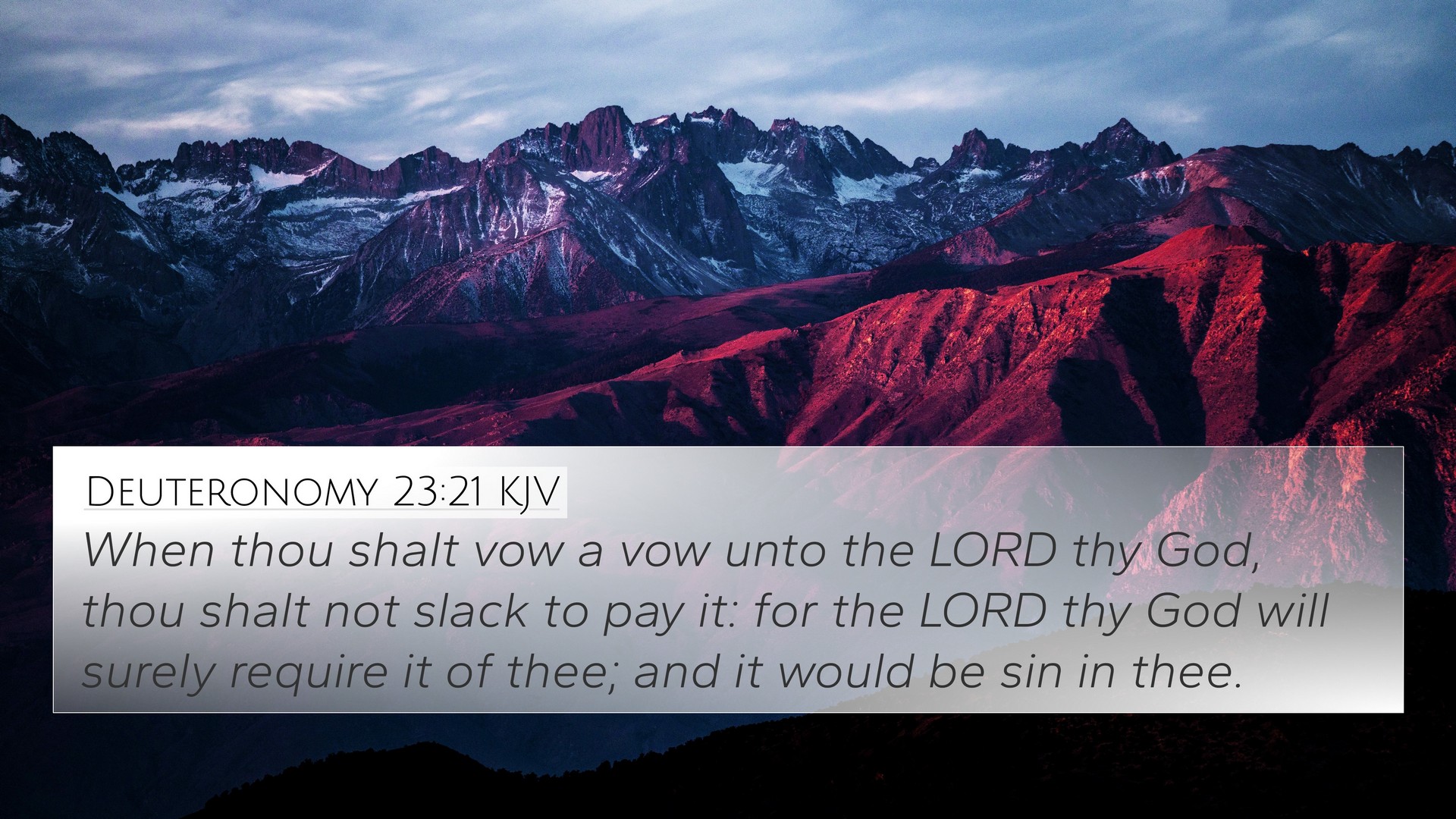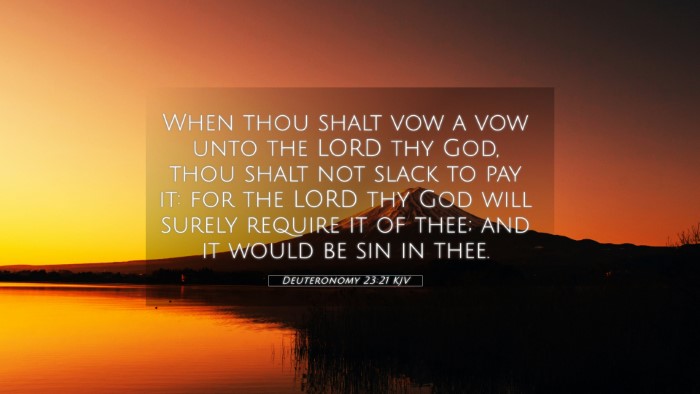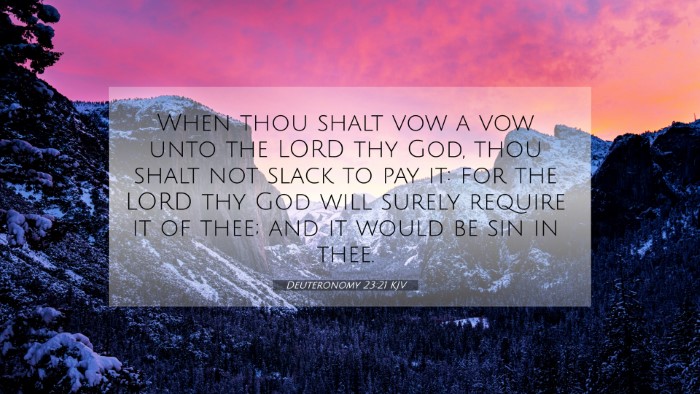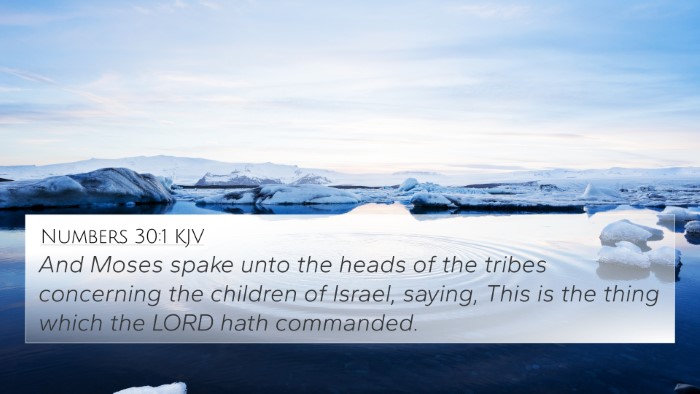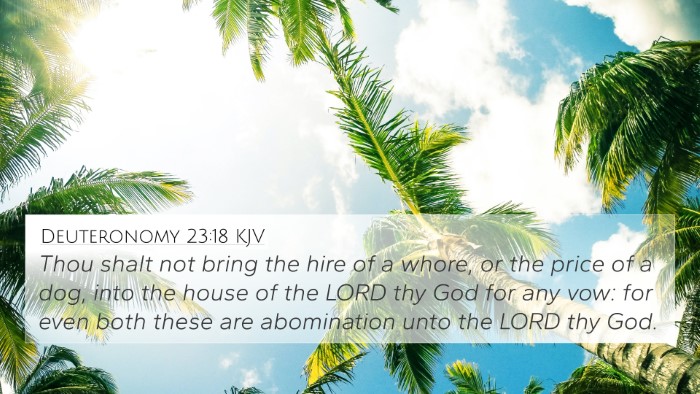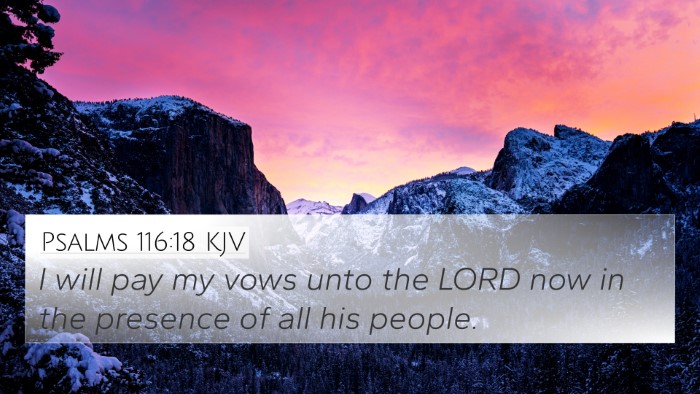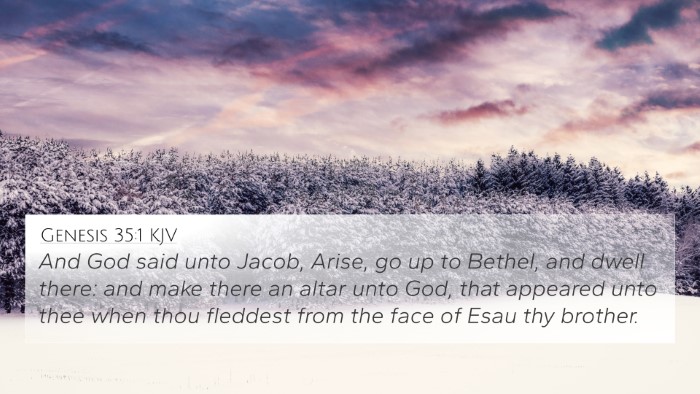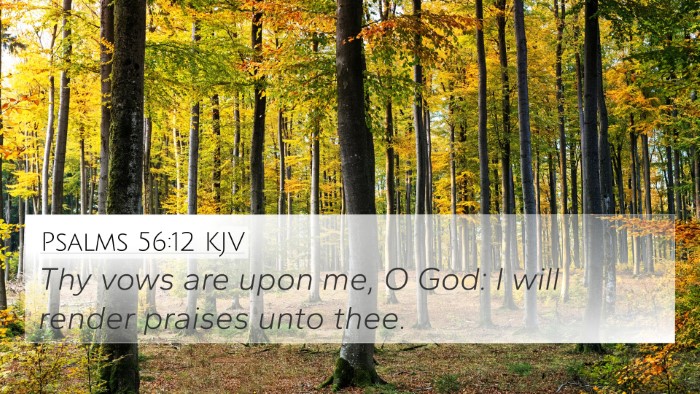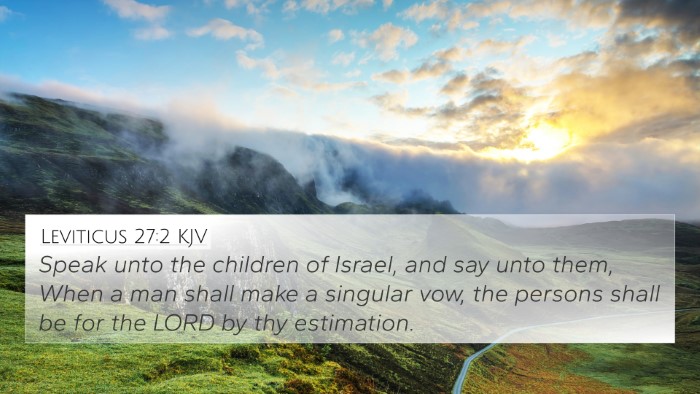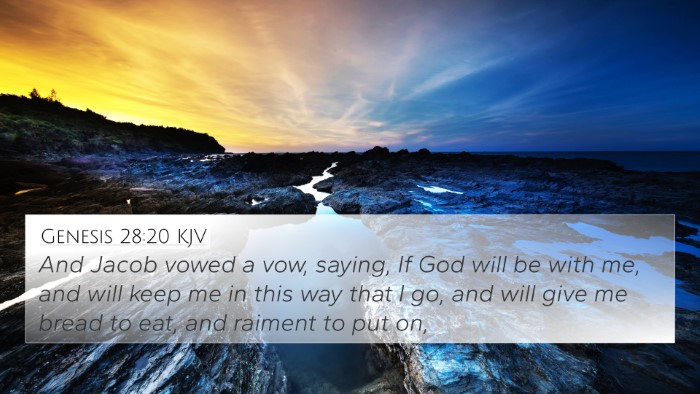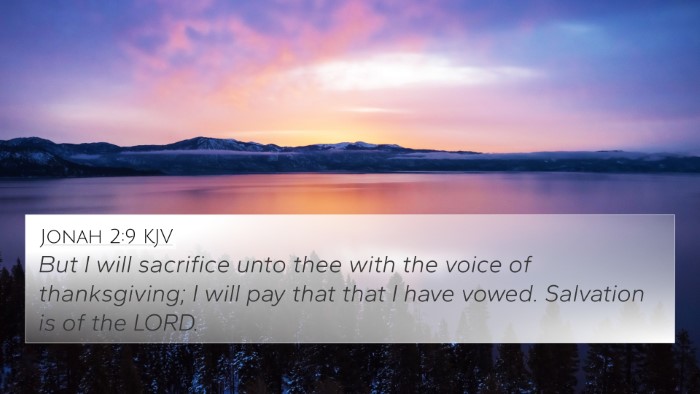Understanding Deuteronomy 23:21
Deuteronomy 23:21 states, "When you make a vow to the LORD your God, you shall not delay to pay it; for the LORD your God will surely require it of you, and it would be sin to you." This verse emphasizes the importance of fulfilling commitments made to God, reflecting the seriousness of taking oaths or vows.
Summary of Meaning
This verse, taken from the book of Deuteronomy in the Old Testament, serves as a reminder that promises made to God should be honored promptly. The implications of this command are profound, as it highlights God's expectation for His people to be faithful and honest in their dealings, particularly concerning promises made to Him.
Insights from Public Domain Commentaries
-
Matthew Henry's Commentary:
Matthew Henry underscores the gravity of making vows before God. He notes that promises made in spiritual devotion should not be taken lightly. Henry suggests that the act of making a vow signifies a stronger commitment compared to casual prayers, reflecting a deeper sense of responsibility.
-
Adam Clarke's Commentary:
Adam Clarke elaborates that this command serves as a warning. He highlights that delaying the payment of vows can lead to sin against God. Clarke also interprets that God's demand for prompt fulfillment of vows is about maintaining integrity and honesty in one’s relationship with Him.
-
Albert Barnes' Commentary:
Albert Barnes points out that the verse indicates a clear expectation from God for His people. He explains that fulfilling vows is an expression of faithfulness that God desires from His followers. Barnes notes that the call to act quickly underscores the importance of not procrastinating in spiritual matters.
Bible Cross-References
Deuteronomy 23:21 can be linked to various other scriptures that deal with vows and commitments:
- Numbers 30:2 - "If a man makes a vow to the LORD, or takes an oath to bind himself by some agreement, he shall not break his word; he shall do according to all that proceeds out of his mouth."
- Ecclesiastes 5:4-5 - "When you make a vow to God, do not delay to fulfill it. He has no pleasure in fools; fulfill your vow. It is better not to vow than to make a vow and not fulfill it."
- James 5:12 - "Above all, my brothers and sisters, do not swear—not by heaven or by earth or by anything else. All you need to say is a simple 'Yes' or 'No.' Otherwise, you will be condemned."
- Psalms 76:11 - "Make vows to the LORD your God and fulfill them; let all the neighboring lands bring gifts to the One to be feared."
- Matthew 5:33-37 - In the New Testament, Jesus warns against making oaths lightly, stating that we should not swear at all but let our 'Yes' be 'Yes' and our 'No' be 'No.'
- Proverbs 20:25 - "It is a trap for a man to dedicate something rashly and only later to consider his vows."
- Romans 12:1 - "Therefore, I urge you, brothers and sisters, in view of God’s mercy, to offer your bodies as a living sacrifice, holy and pleasing to God—this is your true and proper worship."
Thematic Bible Verse Connections
The theme of vow fulfillment is consistent throughout the Bible and connects various passages that illustrate God's expectations regarding promises. This creates an inter-Biblical dialogue that emphasizes integrity, faithfulness, and spiritual accountability.
Application of the Verse
To apply Deuteronomy 23:21 in today's life, one should consider personal commitments made to God, whether in the form of prayers, pledges, or promises. Believers are encouraged to reflect on how these commitments are honored in their lives and the importance of adhering to them promptly.
How to Use Bible Cross-References
Utilizing a Bible concordance can greatly enhance your study of scripture. Tools for Bible cross-referencing allow readers to explore connections between verses, identify thematic relationships, and deepen understanding of biblical teachings through cross-referenced themes. Here are some tips:
- Start with the verse you're studying and look for cross-reference guides in your Bible.
- Use a Bible reference resource to locate related scriptures and understand the broader context.
- Consider the historical and theological implications of each cross-referenced verse.
- Engage in comparative Bible verse analysis to draw insights and deeper meanings.
Conclusion
Deuteronomy 23:21 serves as a reminder of the necessity of fulfilling our vows to God with urgency and sincerity. By understanding and applying cross-references and the commentary insights provided, believers can strengthen their relationships with God through honest and faithful commitment.
